World Press Freedom Day: Female journalists in Pakistan continue to fight for their rights
There are over 3,200 registered journalists, including 152 females, according to National Press Club
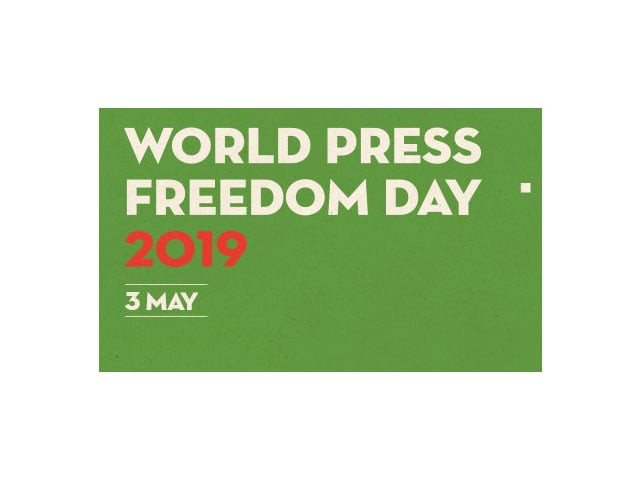
Jabeer, along with a fellow reporter Aitzaz Hassan, was at the courtesy centre of PIMS to cover news related to former SECP chairman, Zafar Hijazi's medical checkup when some agency officials intimidated her and kept her in their illegal detention for an hour.
"I was duty-bound to cover developments on Hijazi's medical visit," Jabeer says. "As I entered the room, I inquired about his health first and later sought permission for pictures…but no one responded. I decided to take pictures myself which angered some agency officials and Hijazi's family members. It created a hostile environment for me and Aitzaz."
Jabeer further details that one of the officers, who was presumably leading the team, caught her by the arm and forcefully pushed her against the wall, all the while telling her to delete all the pictures from her mobile. When she refused to oblige, the officer snatched her mobile and deleted all pictures himself.
Starving the press into submission
"[Merely deleting the pictures] was not enough to calm them down, so they threw some blank papers at me and forced me to write a statement in their favour and against my act," Jabeer further narrates her torment.
"[They told me] 'write that it was your fault' and 'apologise for your act,'" Jabeer recalls. "Hassan also advised me to write whatever they wanted in an attempt to save me from further trouble because one of the agency officers was constantly threatening me, saying "I will see how you go outside and survive in future'."
Some luck was on Jabeer's side that day, as she also carried her official mobile phone which allowed her to text one of her senior colleagues.
"I wrote to my colleague: 'I'm detained in PIMS' courtesy centre, they have snatched my mobile phone and are forcing me to write a fabricated statement' and sent him the message," Jabeer explains.
In the meantime, her office colleagues, seniors and journalists belonging to unions gathered outside the centre where Jabeer and Aitzaz were detained and started a demonstration. The officials, however, refused to release the detainees. As a result, the protesting journalists decided to break open the doors of the centre and rescue the reporters.
Following the journalists' action, the officials resorted to violence and started thrashing journalists and damaged their equipment. Many journalists suffered injuries in the encounter.
Jabeer considers herself lucky because her organisation took all responsibility and registered a case against the agency officials on behalf of the organisation in order to keep her safe, but she is concerned because all of her colleagues are not so lucky.
"Many of my colleagues are facing harassment and other discriminatory attitudes," she adds.
When the incident happened, the then Interior Minister Chaudhry Nisar took notice and formed a five-member committee to probe into the incident. However, prior to the launch of the investigation, Hijazi's family intervened and took all responsibility on its shoulder and apologised for manhandling the reporters.
Although Jabeer is not satisfied with the way her case was closed, she was left with no other option but to accept their apology as the incident had already panicked her family.
Narrating her relatives' reaction to the incident, Jabeer says that as tickers appeared on news channels, instead of supporting her, relatives started misguiding her mother, telling her about the consequences that Jabeer could face and how it would ruin the reputation of the family.
No training to escape harassment
Jabeer's case has been closed and to some extent, its conclusion is satisfactory, but there are many other pending cases that are testing the nerves of the survivors. Tanzeela's harassment case is one of them.
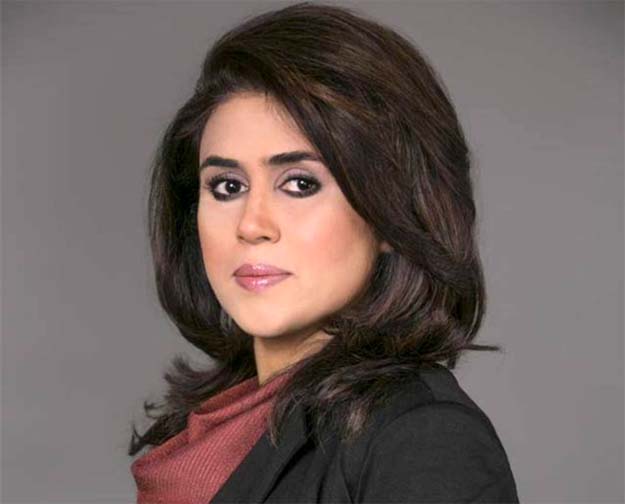
Two years ago, Tanzeela Mazhar, a news anchor working for Pakistan Television, had registered a complaint against an official of her organisation for harassing her as well as her colleague. According to Tanzeela, so far, the harassment committee has made changes in their inquiry report more than four times but the report has neither been shared with the victim, nor with the public.
Following the unusual delay in the preparation of the report because of the influence of the 'harasser party', she took the case to a court which is currently undergoing proceedings.
Mazhar is among the few brave female journalists who dare to stand up against harassment at workplace. However, she is dissatisfied with the current system.
"I'm really disappointed with the way my case has been handled because the harassment committee could not produce even a single report in two years," she laments, adding that the committee members have also been unable to tell anything to the court regarding the findings of their inquiry.
It is important to mention that Mazhar and her colleagues had resigned from their posts in protest against harassment at the hands of their senior. The organisation accepted their resignations but didn't take any action against the alleged harasser. Mazhar regrets that the organisation suspended the alleged harasser on technical grounds but not on harassment charges.
Mazhar also approached the federal ombudsman but later took her case back after the government assured her that justice will be served by the internal harassment committee. They are, however, still waiting for the internal committee to present its report.
According to Mazhar, she has been unable to find a job since the incident took place as no organisation is ready to hire her because of her case.
"It seems that I have made a big mistake by raising my voice against the culprit," she deplores.
Missing safety and security mechanism
Requesting anonymity, a female reporter associated with a leading media group says that journalist bodies have nothing to do with the safety and security of journalists but they are only concerned with personal gains.
She says that her organisation doesn't have any legal department that female journalists can consult for their professional grievances. She, however, admits that her office staff from top to bottom is cooperative and thoroughly sensitised about issues related to harassment.
Regarding news sources, she says that some sources keep blackmailing and harassing reporters, while others ask to meet over a cup of tea. Some sources also start calling and texting during odd times, talking about irrelevant things.
The reporter adds that she has herself been a victim of unsolicited sexual advances, offensive gestures, cat-calling and offensive innuendoes while covering public events. Commenting on how she handles such incidents, she says that "silence is the only weapon".
Sehrish Wasif, an Islamabad-based reporter, believes that female journalists across Pakistan face multiple issues during coverage of events. She says that field reporting and extracting information from the sources is not an easy task.
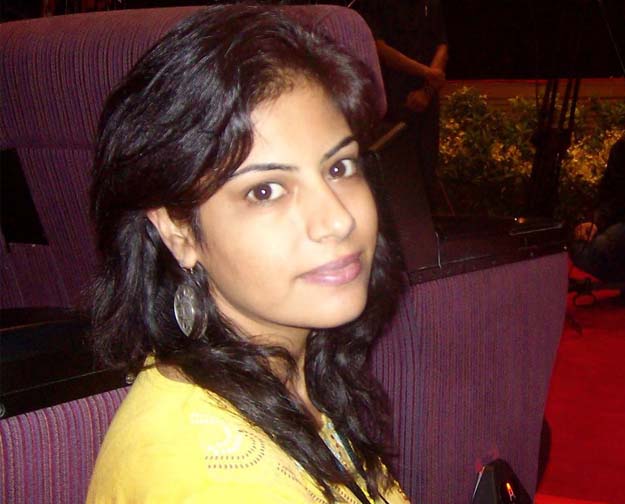
Shedding light on organisational discrimination, she says that as compared to her male colleagues, women are being paid less and hardly get appreciation and encouragement from bosses. In fact, they are mostly discouraged.
Wasif further says that missing transportation facility and late working hours are some other challenges that female journalists have been confronting with in the industry. She also points out the absence of separate washrooms in office buildings, low salaries, male-dominated working environment as additional challenges.
Sharing her own observation as a member of her office harassment committee, she says that females avoid registering complaints due to a lack of trust on internal harassment committees. She adds that it is mainly because females find it difficult to share such incidents or to report them.
"The committee didn't receive even a single formal complaint since I have been a member."
Robina Shaheen, a senior reporter from Rawalpindi, says: "I believe this profession is safe, secure, and more rewarding for females but their career progression highly depends on how they work."
Depending on others and seeking help is a great source of problems for female journalists.
For Shaheen, this profession is all about passion and one needs to be strong, sensible, confident and brave. She strongly believes that there is no platform which can understand and resolve women's problems, adding everyone would be ready to support women only because of their gender, not because they are seen as equals or regular colleagues.
National Press Club Islamabad President Shakeel Qarar accepts that there should be a separate forum for female journalists where they can share their problems, but when asked about any such forum under NPC, he says that NPC is a social gathering forum for journalists not an entity to discuss and resolve journalists' issues. He, however, mentions that drafting strategies for the safety and security of journalists – whether males of females – is the obligation of PFUJ and RIUJ.
NPC has an informal committee led by NPC Vice President Sadia Kamal to resolve female journalists' problems. When contacted, Sadia explains that so far only three female journalists have approached her against harassment and their cases are currently under review.
Describing the procedure, she says that her five-member committee include three male and two female journalists who first listen to both the parties separately and then arrange their meeting in the presence of the committee members. Sadia, however, has the view that sometimes women misperceive certain acts of their colleagues and term them harassment and over react. There is a need to sensitise them as well.
There are over 3,200 registered journalists, including 152 females, according to the list available with the NPC. These female journalists are working in different capacities in different media organisations.
A survey shows that the majority of female journalists accept that they have been faced harassment and other problems within and outside their organisations but they avoid complaining following lack of credibility of representative bodies and missing proper mechanism at organisational level.
There are many female reporters in Islamabad who have faced harassment, intimidation, illegal detention and assault in the line of duty and the process of such offensive acts at the hand of the public, colleagues, political parties and public sector officials continue unabated.
The misfortune is there is no handbook available to female journalists to get support against their professional problems.
Federal Ombudsmen Secretariat Consultant (Legal) Rehman Shahzad says that no female from media ever approached the organisation against any kind of harassment in the past two years. He, however, adds that two to three harassment cases from PTV and one from Radio Pakistan have been reported but the complainants retrieved their cases, saying that their cases have been resolved within the organisation.
Sadaf Khan, Founder Media Matters for Democracy (MMfD) – an organisation for the capacity building of journalists, says that the policies of media houses are not women-friendly – from the very basic facilities like women's separate washrooms to lack of a proper maternity leave package – the polices hinder progress of women journalists at every level.
In addition, she states that harassment is rampant and despite the workplace harassment law in place in most organisations, women who make public complaints about harassment often have to face further harassment and are isolated within the industry.
Khan adds that female journalists need a united front and advocate for policy level changes, especially with regards to maternity leaves, salary scales and other necessary facilities. They also need to engage the unions in this discussion and push for representative bodies to adopt more gender-friendly policies.
The Harassment Act
The Protection against Harassment of Women at the Workplace Act clearly says that any unwelcome sexual advance, request for sexual favour or other verbal or written communication or physical conduct of a sexual nature or sexually demeaning attitudes, causing interference with work performance or creating an intimidating, hostile or offensive work environment, or the attempt to punish the complainant for refusal to comply to such a request or is made a condition for employment, constitutes harassment.
The act, which was passed in 2010, builds on the principles of equal opportunity for men and women and their right to earn a livelihood without the fear of discrimination as stipulation in the Constitution.
The act bounds all public and private organisations to adopt an internal Code of Conduct and a complain appeal mechanism aimed at establishing a safe working environment for working women. It also bounds employer to ensure its implementation and organisations shall display copies of Code of Conduct at the conspicuous place in offices. Failure of an employer to comply with this provision makes the employer liable to fines which may extends Rs100,000 but shall not be less than Rs25,000.
Throughout the month of May, World Press Freedom is being observed across the globe including Pakistan but missing safety and security mechanism at state and union bodies' level is proving to be a tough case for journalists, especially female journalists, to survive.

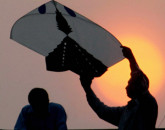
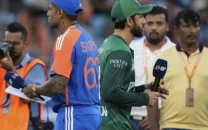
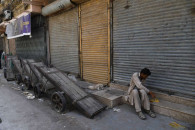


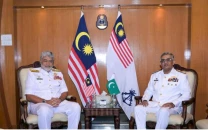












COMMENTS
Comments are moderated and generally will be posted if they are on-topic and not abusive.
For more information, please see our Comments FAQ